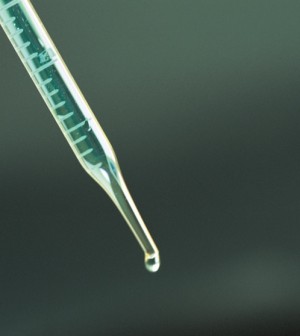- Could Your Grocery Store Meat Be Causing Recurring UTIs?
- Are You Making This Expensive Thermostat Error This Winter?
- Recognizing the Signs of Hypothyroidism
- 10 Strategies to Overcome Insomnia
- Could Artificial Sweeteners Be Aging the Brain Faster?
- Techniques for Soothing Your Nervous System
- Does the Water in Your House Smell Funny? Here’s Why
- Can a Daily Dose of Apple Cider Vinegar Actually Aid Weight Loss?
- 6 Health Beverages That Can Actually Spike Your Blood Sugar
- Treatment Options for Social Anxiety Disorder
Health Highlights: Sept. 29, 2016

Here are some of the latest health and medical news developments, compiled by the editors of HealthDay:
New Rule Protects Nursing Home Residents’ Legal Rights
A new Center for Medicare & Medicaid Services’ rule forbids nursing homes and assisted living facilities that receive federal funding from forcing residents to resolve disputes in arbitration instead of court.
The rule issued Wednesday would affect 1.5 million nursing home residents and addresses health and safety claims such as elder abuse, sexual harassment and wrongful death, according to New York Times.
Nursing home contracts have pushed such claims into the private system of arbitration and out of public view. While that has lowered nursing homes’ legal costs, it has thwarted justice for many nursing home residents and their families.
“The sad reality is that today too many Americans must choose between forfeiting their legal rights and getting adequate medical care,” Senator Patrick Leahy, a Democrat of Vermont, said in a statement, The Times reported.
The new rule was introduced after officials in 16 states and the District of Columbia urged the federal government to take action to protect nursing home residents.
But the nursing home industry opposes the change.
The new rule “clearly exceeds” the Centers for Medicare and Medicaid Services’ legal authority and was “wholly unnecessary to protect residents’ health and safety,” Mark Parkinson, president and chief executive of a trade group called the American Health Care Association, said in a statement, The Times reported.
—–
Artificial Bone Created by Scientists
Artificial bone that can be custom-shaped using a 3-D printer has been developed by scientists.
The Northwestern University researchers said their “hyper-elastic bone” acts like natural bone and can be used to repair deformed bones and certain types of bone injuries, NBC News reported.
When tested in a monkey, the material fused to the animal’s skull and new blood vessel grew into it, the team reported in the journal Science Translational Medicine.
The researchers hope to test the material in people within the next five years, NBC News reported.
—–
Supplement Maker Pledges Genetic Tests of Products
The United States’ largest maker of herbal supplements has agreed to conduct advanced genetic testing to confirm its products actually contain the ingredients listed on the label.
The pledge by NBTY was announced Wednesday by the New York State attorney general’s office after an investigation discovered that 80 percent of supplements from major retailers did not contain any of the herbs promised on the label, The New York Times reported.
Instead, the products often contained pills with cheap fillers such as asparagus, houseplants and powdered rice. In some cases, the products contained ingredients such as nuts and soy, which could pose a risk to people with food allergies.
The agreement with NBTY affects a number of popular brands, including Solgar, Nature’s Bounty and Sundown Naturals, according to The Times.
It’s the third such agreement the New York State attorney general’s office has reached with a supplement maker.
Copyright © 2026 HealthDay. All rights reserved.










